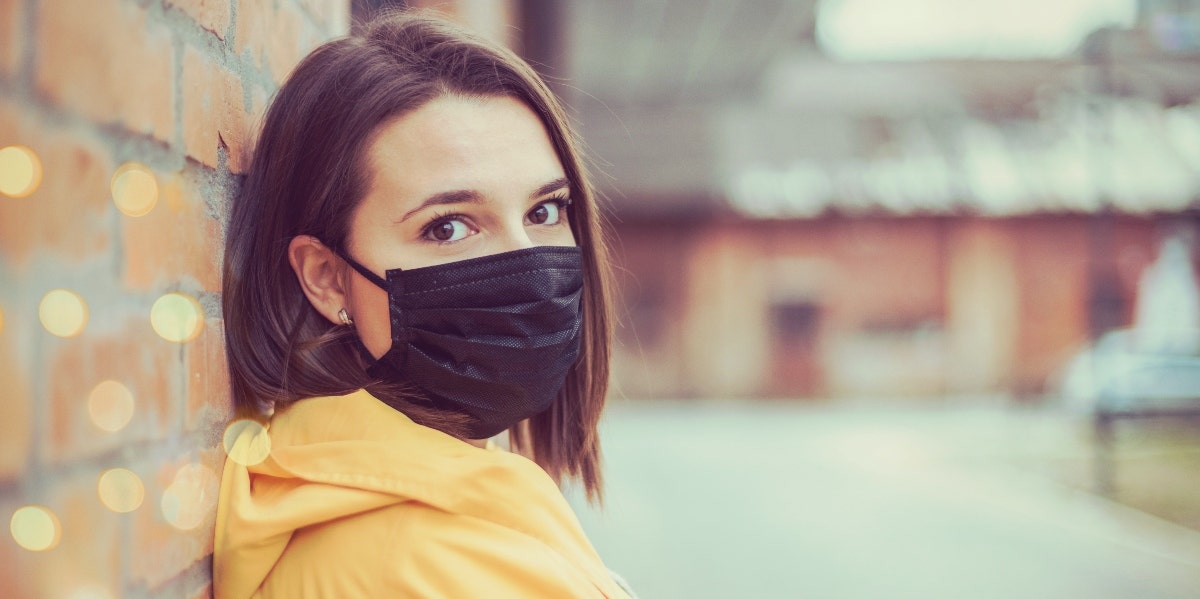How To Release The Social Stress & Anxiety Of Getting Back To Normal, Post-Vaccine
Are you still feeling stressed even after getting the vaccine?
 getty
getty Life after Covid is going to be vastly different.
You hunkered down for over a year. You learned to navigate grocery aisles with mask-fogged glasses, giving wide berth to all breathing creatures.
You’ve survived a tsunami of uncertainty, unrest, stress, upheaval, grief, and fear — a life disrupted.
And now, you are (or almost are) vaccinated and ready to venture out!
Why does this trigger even more stress?
It feels a bit like starting to date someone again after a really nasty breakup. You don’t trust them. You’re not even sure you trust you.
Only, this breakup was with the world as you knew it! You actually had to "unlearn" parts of trusting. Just because you loved someone or worked with them for years, you couldn’t assume they were "safe."
How weird is that?
Everyone is more on edge and reactive — your staff, your clients, your friends, and your family. Some just seem oblivious and that’s really annoying, too.
There's still so much loss and grief to process, not to mention massive uncertainty about what’s ahead.
Life After Covid: Your Brain’s Perspective
Over the past year, that "stranger danger" you learned as a toddler became very real for your brain. And since your brain’s number one job is to keep you safe, it’s had to operate on high alert for far too long.
That trauma-reinforced vigilance is hard to subdue. The chronicity and repetition actually changed your wiring.
Plus, there’s just enough uncertainty still out there — variants, other viruses, economic instability, and hate crimes — to keep your fear circuits alive and kicking.
It’s important to note that if you went into this pandemic already stressed or anxiety-prone, your brain was pre-wired to keep this worry flowing.
At least, we can thank Covid for making mental health a safer topic. Anxiety, depression, trauma, and Covid Stress Syndrome are real and treatable.
Please seek help if you're having difficulty managing.
But even the stress management pros and wellness experts have struggled as the enormity of this challenge overwhelmed their routine coping mechanisms.
How do you tone down the reactivity and discomfort? How do you take care of your own stress and help others manage theirs?
Here are 5 ways to release social stress and anxiety in life after Covid.
1. Recognize feeling stressed for what it is.
The culture has trained you to dismiss emotions as weakness. If you're in the wellness industry, you may even feel shame for feeling stressed.
But, the emotions of stress are merely signals from your brain, alerting you to "take motion" in some manner to be safe.
After this past year, no matter how skilled you are, it's perfectly normal to experience a wide range of emotions, including anger and fear.
"Name them to tame them."
It's not OK to let these emotions control your thoughts, actions, or health. It's time to learn to recognize them as "data." Get curious — it’s a human superpower!
Ask what you really need now. Make stress discussions safe at work. And keep recharging mind, body, and spirit.
2. Get grounded.
Use another human superpower: calming yourself. You can use your breath and body to calm your mind and access your smarter, less-reactive brain.
Simply slowing your breath, saying a mantra that grounds you, or bringing your attention to the feeling of rubbing your feet on the floor can help your brain gain control over a stress reaction.
What works to remind you of the bigger picture, more important priorities? Repeat, repeat.
3. Don’t catch it.
Yes, stress is contagious. Your mirror neurons help you recognize stress in others and ramp up your sympathetic flight or fight system, so you are better prepared for "danger."
This is helpful for survival in the wilderness, but not when dealing with stressed co-workers, clients, family, or friends. Notice the signs and symptoms of stress in others.
Dial-up your human superpower of compassion. No one behaves at their best when stressed or fearful. Slow your own breath to reassure your brain, "It’s OK."
4. Don’t spread it.
Check in routinely and take responsibility for what you're feeling and how that affects others.
Remind yourself of your courage and the strengths that have helped you be who you want to be in the face of challenge.
Stay accountable for your self-care, especially rest and exercise. Avoid conversations that escalate fear.
Use appreciative inquiry more. It takes practice to retrain hope and focus on possibility.
5. Tread lightly.
Rebuilding trust is a process that cannot be rushed. Take small steps. Reflect on wins. Rest your mind, body, and spirit when they need it. Be kind to you and others.
You are not alone if the words "new normal" crank you up a notch. Your brain adores certainty, and that ship has sailed. (It was actually never in port — we just like to think so!)
What’s called for now, as we explore these unchartered waters, are some of our human superpowers — courage, creativity, and compassion, especially self-compassion.
Spread kindness. Start with you. Be part of creating a world where we can be fully human and thrive.
Cynthia Ackrill, M.D. is a leader in the field of stress mastery and an expert in the critical connections between lifestyle choices, performance capacities, leadership effectiveness, health, and happiness. For more information, contact her or visit her courses and resources on her website.
